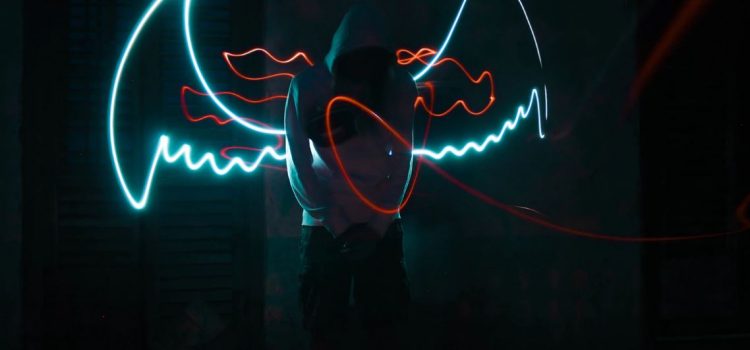

This article is an excerpt from the Shortform book guide to "Humankind" by Rutger Bregman. Shortform has the world's best summaries and analyses of books you should be reading.
Like this article? Sign up for a free trial here .
Are humans inherently good or evil? Are we born good and corrupted by civilization? Or does civilization correct and curb our inherently evil nature?
For millennia, philosophers have debated humankind’s true nature. According to author Rutger Bregman, there are two philosophers in particular who’ve shaped this debate: Thomas Hobbes and Jean-Jacques Rousseau. Hobbes believed that humans are inherently selfish and cruel, whereas Rousseau maintained that we’re fundamentally decent and want to do the right thing.
Let’s take a look at both sides of the debate.
The Debate: Are Humans Good or Evil?
Are humans inherently good or evil? According to Bregman, the debate on the subject of goodness of humanity is far from resolved. Many of our current social and political debates stem from these two conflicting views of human nature, including where to spend government money, how to reform prisons, and how to manage workers. We’ll discuss some of these debates in more detail later in the guide. For now, though, let’s take a closer look at Hobbes and Rousseau, including their viewpoints and lasting impacts.
(Shortform note: As Bregman notes, Hobbes and Rousseau most famously articulated the two sides of the human nature debate in Western philosophy. But other philosophical traditions have similar debates. For example, in Chinese philosophy, the philosopher Mencius (372 to 289 BCE) made a similar argument as Rousseau, maintaining that we’re inherently good. On the other side of the debate is the philosopher Xunzi (310 to unknown BCE), who, like Hobbes, argued that we’re fundamentally selfish and that our inherent tendencies lead to anarchy.)
Thomas Hobbes: Civilization Curbs Humans’ Evil Instincts
Thomas Hobbes was an English philosopher who lived during the 17th century. According to Bregman, Hobbes maintained that humans are fundamentally selfish creatures driven by a desire for power. Before civilization, Hobbes said, this selfishness led to anarchy: Each person sought power for themselves, creating an all-out war. In his most famous book, Leviathan (1651), Hobbes argued that the only way to combat this anarchy was to give up our freedom to a powerful ruler, which he named the “Leviathan.” In his view, the Leviathan would keep order by ensuring that humans’ base instincts didn’t rise to the surface.
(Shortform note: Hobbes’s view of human nature—and his fear of anarchy and war—stem from his life experiences. He wrote Leviathan during a period of civil war in England. On one side of the war were the Royalists, who supported the reigning but unpopular King Charles I and his claim to absolute, God-given power. On the other side were the Parliamentarians, who wanted the elected Parliament to control the government. In 1649, two years before Hobbes published Leviathan, the Parliamentarians executed King Charles I. Hobbes worried that the deposition of Charles would lead to all-out anarchy, hence his assertion that only a powerful sovereign can prevent war.)
According to Bregman, Hobbes’s thinking is foundational to Western society. As we’ll discuss later in the guide, the notion that humans are fundamentally selfish creatures who require a strong hand still informs theories of criminal justice, management, and government.
Jean-Jacques Rousseau: Civilization Fetters Humans’ Innate Goodness
On the other side of the human nature debate is Jean-Jacques Rousseau, an 18th-century French philosopher. According to Bregman, Rousseau argued that humans are inherently cooperative and compassionate. He believed that before civilization, we lived free lives guided by kindness and equality. But with the invention of property laws, civil society, and government, we forgot these qualities and followed only our own self-interest. We began to fight and kill each other over property. In other words, Rousseau argued the opposite of Hobbes: that instead of saving us from chaos, civilization distanced us from the best versions of ourselves.
(Shortform note: Bregman implies that Rousseau saw humans as purely unselfish and compassionate. However, Rousseau did acknowledge that human beings have a self-protecting side. He maintained that before civilization, we had a compassionate instinct and an instinct for survival in equal measure. In very extreme circumstances (for example, if we were about to get hurt), the survival instinct would override our sense of compassion to protect us. However, Rousseau claimed that civilization made us lose our compassion, causing the self-protecting instinct to take over.)
Bregman’s View: Humans Are Fundamentally Good
In the debate between Hobbes and Rousseau, Bregman comes down firmly on the side of Rousseau. He maintains that at our core, humans are compassionate, cooperative, and friendly. Over millions of years, our species has evolved to support each other and work together.
This doesn’t mean that we always behave kindly and compassionately: Bregman acknowledges that we’ve done terrible things throughout history, including introducing slavery and committing genocide. However, he suggests that when we commit evil, it isn’t because we’re fundamentally vile and selfish creatures. Rather, in his view, we commit evil for a variety of reasons, including our distrust of strangers, our desire to conform, and our willingness to act for the greater good.
In this section, we’ll discuss Bregman’s claims in greater detail. First, we’ll review evolutionary evidence that suggests that our earliest ancestors were cooperative and friendly. Then, we’ll discuss why Bregman believes the invention of farming destroyed this cooperation. Finally, we’ll turn to more modern evidence that humans are fundamentally kind, and we’ll explain why humans commit evil in Bregman’s view.

———End of Preview———
Like what you just read? Read the rest of the world's best book summary and analysis of Rutger Bregman's "Humankind" at Shortform .
Here's what you'll find in our full Humankind summary :
- Why humans are fundamentally good, not evil
- How the Stanford Prison Experiment was misleading
- How recent studies have debunked "Killer Ape Theory"






